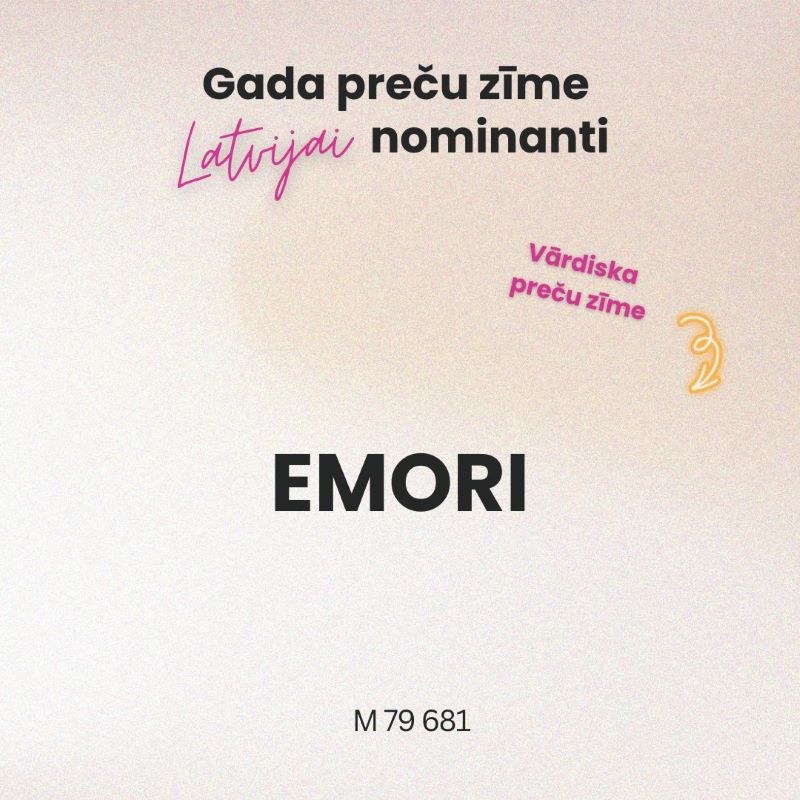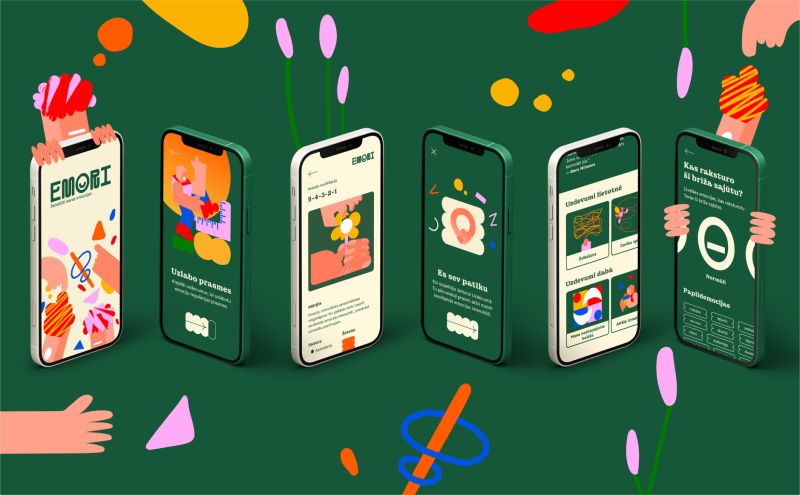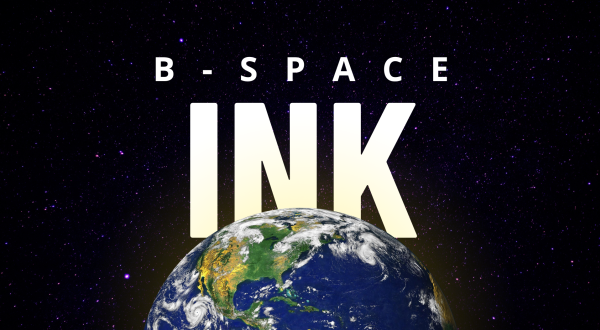Emotion awareness app EMORI nominated in the category Trademark of the Year – For Latvia
The Patent Office's expert commission has nominated the app EMORI for the Trademark of the Year – For Latvia award in the second quarter of 2024, according to an announcement on the Patent Office's website. EMORI helps users become aware of and understand their emotions.

The app was created in collaboration between Rīga Stradiņš University, the Art Academy of Latvia, and Ventspils University of Applied Sciences. It aims to improve psycho-emotional health by developing skills for recognising and regulating emotions through interactive tasks.
A total of eight candidates have been nominated for the various Trademark of the Year 2024 awards.
The EMORI project team included bachelor’s, master's, and doctoral students and their lecturers, who created the app prototype as part of a vertically integrated project study course 'Psychological Assistance and Self-Help'. The app is designed to improve psycho-emotional health by allowing users to develop skills for recognising and regulating emotions. Through interactive art-based and psychological tasks, users can improve their ability to handle, accept, or control their emotions.
Kā skaidro projekta komandas pārstāvji,
"Currently, only part of the app is available and only as a test prototype, but we are working towards making it accessible to everyone in the future. We plan to create a start-up and attract investments to validate EMORI and make it a commercial product," explained the project team.

According to Inese Paiča, one of the project's implementers, lecturer and researcher at the RSU Department of Health Psychology and Pedagogy, "the idea was born in 2020 at a conference in the Netherlands dedicated to emotions. There, students presented simple apps they had created to help doctors observe patient habits and moods.
Over time, the idea took shape and focused specifically on emotions and emotion regulation, which is a significant topic not only in research but also of great practical value.
Together with students, we carefully studied existing apps to better understand what our app's content should be. We wanted to create it as a self-help intervention for any resident of Latvia, initially thinking of a very broad target audience, but over time we narrowed and refined it. Currently, the target audience is young adults. The app's design is very lively and colourful."
From RSU, among the app's developers were Prof. Kristīne Mārtinsone, doctoral student and lecturer Inese Paiča (concept and content structuring), art therapy master's students Maruta Linuža and Inga Iejava (content development and pilot studies), and psychology bachelor’s student Jete Anna Balama (pilot study). Content development is also carried out by psychology doctoral student Elīna Ieva Smule.

Related news
 Apply for the B-Space incubation programmeInnovation, RSU LSPA, For Students, RSU Alumni, For RSU Employees
Apply for the B-Space incubation programmeInnovation, RSU LSPA, For Students, RSU Alumni, For RSU Employees


